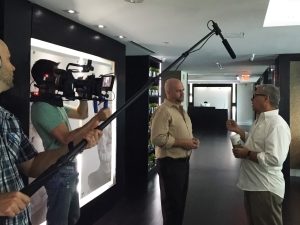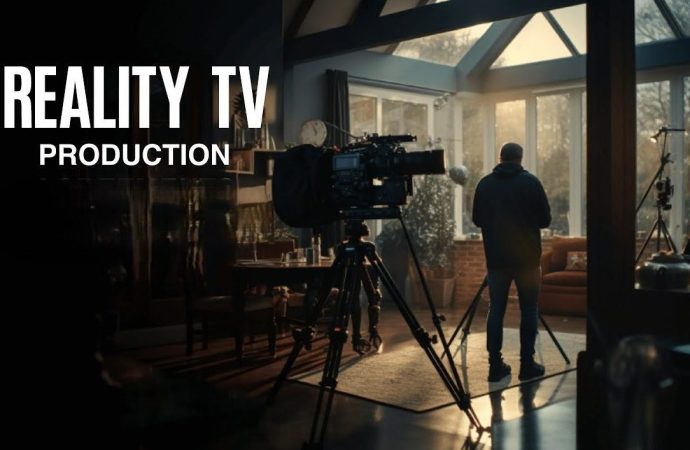Introduction Reality TV is a big part of today’s entertainment, drawing in viewers worldwide with its real-life drama and unscripted stories. But making these shows isn’t easy and comes with many challenges. Producers have to find the right people, create interesting situations, manage budgets, and keep viewers hooked. This requires a mix of creativity, planning,
Introduction
Reality TV is a big part of today’s entertainment, drawing in viewers worldwide with its real-life drama and unscripted stories. But making these shows isn’t easy and comes with many challenges. Producers have to find the right people, create interesting situations, manage budgets, and keep viewers hooked. This requires a mix of creativity, planning, and flexibility. In this article, we’ll explore the main challenges producers face when bringing reality shows to life.
The Rise of Reality TV

Image by: Yandex.com
Reality TV has become very popular over the past few decades. It started with just a few shows but has grown into a major genre with millions of fans. People love watching real stories, unscripted drama, and true emotions. This growth is partly because viewers now prefer content that feels real and relatable. Reality TV gives us a peek into other people’s lives, making it fun and interesting to watch.
The Importance of Editing in Reality TV
Editing is a key part of making reality TV. After filming, editors go through hours of video to create a clear story. They choose the most exciting parts and put them together to keep viewers interested. Good editing can turn a lot of raw footage into an exciting episode. Editors also help set the mood of the show by choosing which moments to highlight. This process is important because it shapes how the audience sees the characters and the story.
The Impact of Social Media on Reality TV

Image by: Yandex.com
Social media is very important for the success of reality TV shows. Platforms like Instagram, Twitter, and TikTok let viewers connect with their favorite stars and share their thoughts about episodes. Producers use social media to promote their shows by sharing previews and behind-the-scenes moments to build excitement. This direct connection helps create loyal fans and makes viewers feel more involved. But it also puts pressure on producers to keep fans interested and happy.
The Benefits of Reality TV
The Role of Producers in Reality TV

Image by: Yandex.com
Producers play a big role in making reality TV shows successful. They plan, organize, and manage everything on set. From choosing participants to creating storylines, producers lead the whole process. They also work closely with editors to shape the final show. A good producer knows how to keep the show entertaining while making it feel real, helping it connect with viewers.
The Diversity of Reality TV Genres

Image by: Yandex.com
Reality TV comes in many types, appealing to different viewers. Some shows focus on lifestyle changes, like “The Biggest Loser,” which promotes healthy living. Others, like “Keeping Up with the Kardashians,” show the daily lives of celebrities. There are also talent shows, dating shows, and home makeover shows. This variety means there’s something for everyone, allowing people to choose shows that match their interests. This mix keeps reality TV fresh and fun to watch.
The Role of Hosts and Narrators
The Ethical Considerations in Reality TV

Image by: Yandex.com
Ethics are important in making reality TV. Producers must treat participants fairly and with respect. This means not twisting stories in a way that could harm people or mislead viewers. As audiences become more aware of these issues, producers need to balance entertainment with doing the right thing. It’s important to protect the well-being of participants and show their experiences honestly. This helps keep viewers’ trust and makes reality TV more believable.
The Role of Audience Feedback
Audience feedback is very important for reality TV shows. Viewers often share their opinions on social media, which can influence the show’s direction. Producers pay attention to this feedback to see what people like or dislike. This helps them plan future seasons or episodes. If a certain storyline or participant is popular with viewers, producers might choose to focus more on that. This ongoing interaction creates a close relationship between the producers and the audience.
The Economic Impact of Reality TV
Reality TV has a significant economic impact on the entertainment industry. These shows often require fewer resources than scripted productions, making them cost-effective to produce. This allows networks to invest in a larger number of shows, creating more job opportunities within the industry. Additionally, successful reality shows can generate substantial revenue through merchandise, spin-offs, and international versions. The financial success of reality TV contributes to the overall growth and diversity of programming available to viewers.
Budget Constraints and Time Management

Image by: Yandex.com
Another big challenge in reality TV production is managing a tight budget. Unlike scripted shows, reality TV often requires quick setups in different locations, which can be costly. The crew, equipment, and places to film need to be booked and organized carefully to avoid overspending. Time limits make this even harder because episodes are often filmed back-to-back to keep costs low. This requires careful planning to make the most of the time without wearing out the cast and crew. Long hours can hurt performance and morale, so it’s important to find a good balance.
Balancing Viewer Expectations and Ethical Standards

Image by: Yandex.com
As reality TV has become more popular, viewers expect more drama and realness. However, creating more drama can lead to ethical problems, like encouraging bad behavior for higher ratings. Producers must be careful because changing situations too much can harm the show’s trustworthiness and the mental health of the participants. Taking care of participants and making sure they are treated fairly is now a key part of reality TV production, especially as audiences become more aware of these issues.
Editing and Post-Production Complexities

Image by: Yandex.com
The Challenge of Casting and Scripting
The Future of Reality TV

Image by: Yandex.com
Analysis Table: Key Challenges in Reality TV Production
| Aspect | Challenge | Impact on Production |
| Casting | Finding engaging personalities | Impacts audience engagement and show dynamics |
| Budget Constraints | Limited resources for locations and crew | Limits production quality and flexibility |
| Unpredictability | Real-life conflicts and weather issues | Requires adaptability to maintain continuity |
| Ethical Standards | Balancing drama with fairness and ethics | Affects show credibility and participant welfare |
| Post-Production Editing | Sifting through extensive footage | Shapes narrative; influences final show quality |
Comparative Table: Reality TV vs. Scripted TV Production
| Factor | Reality TV Production | Scripted TV Production |
| Script Structure | Unscripted with guided scenarios | Fully scripted and rehearsed |
| Budget Flexibility | Often tighter; less room for reshoots | Higher budgets allow for more control |
| Participant Role | Real people with minimal acting training | Professional actors with rehearsal roles |
| Unpredictability | High; depends on real emotions and events | Low; controlled environment |
| Editing Influence | Strong editors shape narrative significantly | Moderate; follows a pre-planned storyline |
Conclusion
Producing reality TV is a delicate balancing act involving strategic planning, adaptability, and ethical considerations. Each stage, from casting to post-production, presents unique challenges that require creative problem-solving. As reality TV continues to evolve, producers face the ongoing task of crafting content that entertains while maintaining authenticity and respect for participants.
















